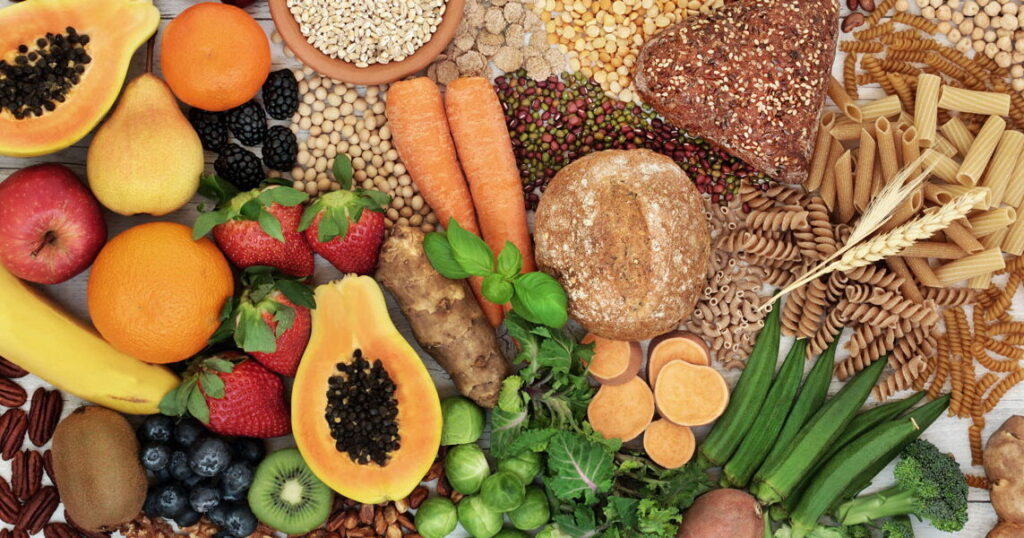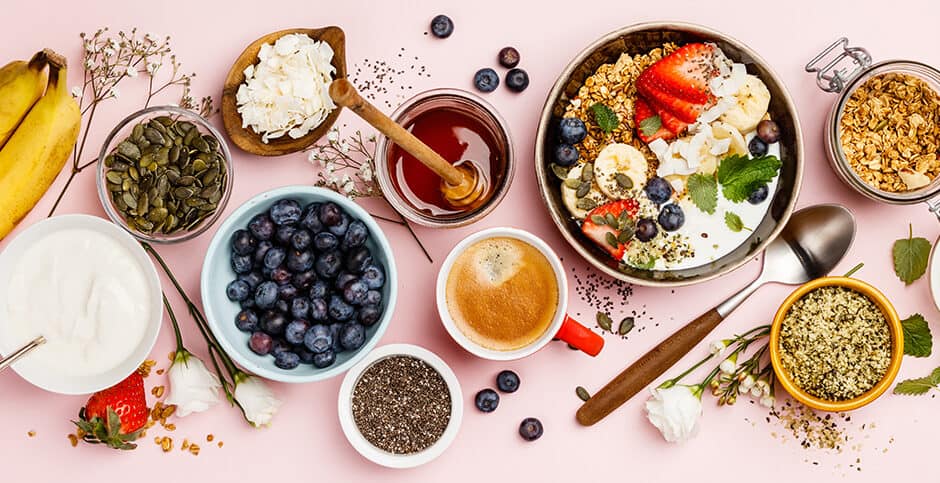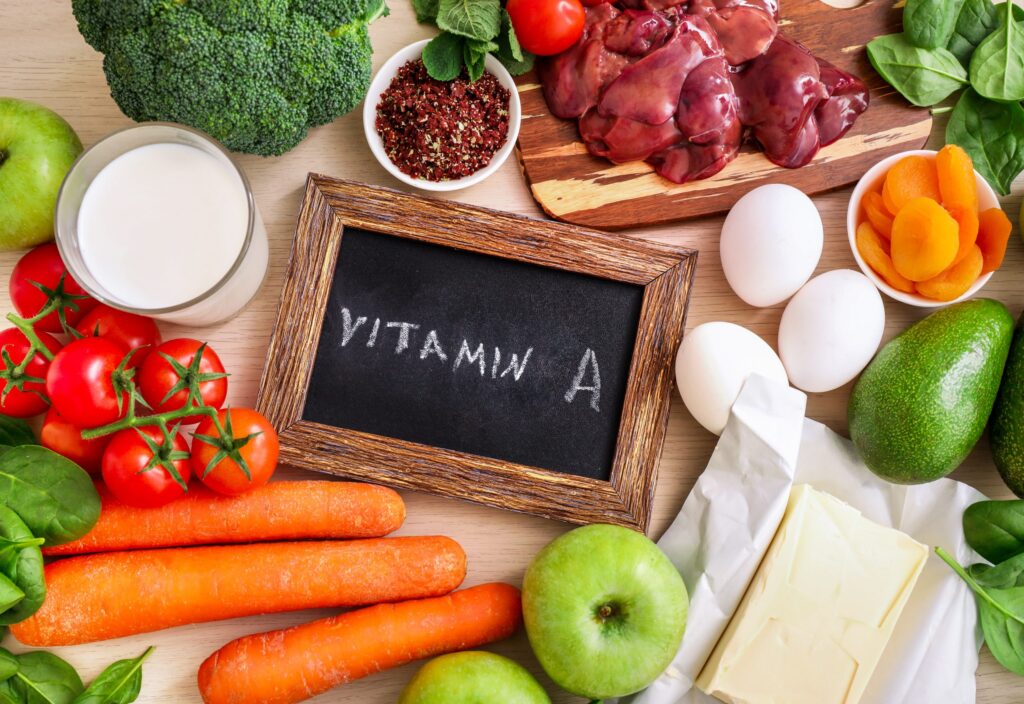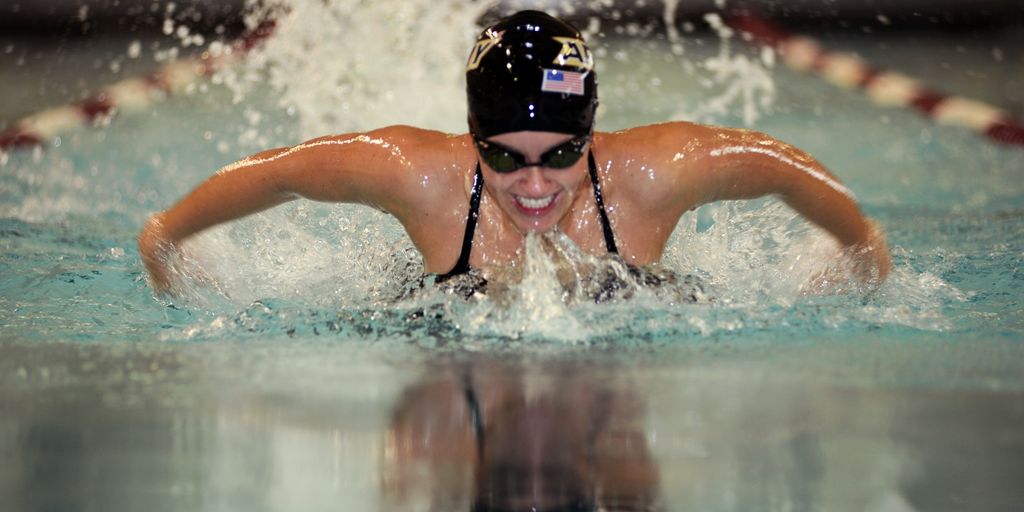Swimmers aiming to build muscle must strategically approach their diet to enhance performance and muscle recovery. This article delves into the optimal diet for swimmers, emphasizing the importance of a balanced intake of nutrients, the timing of meals, and the role of hydration.
Key Takeaways
- Incorporate a balanced mix of carbohydrates, proteins, and healthy fats to fuel intensive swimming sessions and muscle growth.
- Hydration is crucial; swimmers should drink water throughout the day, especially before, during, and after workouts.
- Timing of meals impacts performance; eat high-carb meals before training and protein-rich foods after to aid recovery.
- Consult an Accredited Sports Dietitian to tailor dietary plans to individual needs and training demands.
- Include a variety of fruits, vegetables, whole grains, and nuts to ensure a rich intake of vitamins, minerals, and antioxidants.
Fueling Up: What’s on the Menu?
Carbs: The Powerhouse
Carbs are your go-to energy source, making them a must-have in any swimmer’s diet. Think of them as your fuel for both training and recovery. Starchy carbs like bread, rice, pasta, and potatoes are ideal, especially before a big swim. Here’s a quick breakdown of a swimmer’s carb intake:
- Breakfast: Oatmeal or whole grain cereals
- Lunch: Pasta or rice-based dishes
- Dinner: More complex carbs like quinoa or sweet potatoes

Protein: Building Blocks of Muscle
Protein is crucial for muscle repair and growth. Incorporating a variety of sources such as chicken, fish, eggs, and beans ensures you’re getting all the essential amino acids. A balanced plate after a tough training session might look like this:
- Half the plate: Carbs
- Quarter of the plate: Protein
- Quarter of the plate: Fats
Healthy Fats: Don’t Skip These
Healthy fats are often overlooked but are vital for overall health and sustained energy. Include sources like avocados, nuts, and seeds in your diet. A snack that combines these elements could be a trail mix with nuts and dried fruits, perfect for on-the-go energy.
Hydration Station: Why Water Wins
Importance of Staying Hydrated
Water is a swimmer’s best friend, especially during those intense training sessions. It’s not just about quenching your thirst; staying hydrated is crucial for maintaining energy levels and overall performance in the pool. Hydration is key to unlocking your potential in swimming, so always keep that water bottle handy!
Best Drinks for Swimmers
While water usually does the trick, for longer or more intense sessions, consider sports drinks. These aren’t just about hydration; they provide carbohydrates for fuel and electrolytes to keep your energy levels soaring. Here’s a quick breakdown:
| Drink Type | Benefits |
|---|---|
| Water | Hydrates, refreshes |
| Sports Drinks | Adds fuel, boosts electrolytes |
Timing Your Hydration
Timing is everything, and that goes for hydration too. Start hydrating well before you hit the pool, continue sipping during your swim, and don’t forget to replenish fluids after you’re done. This routine ensures you stay hydrated throughout your training, helping you perform at your best every time you dive in.
Meal Timing: When to Eat What
Pre-Workout Meals
Timing your meals is crucial for maximizing performance and energy levels. A high carbohydrate meal 2 to 4 hours before your swim ensures your body has enough time to digest and absorb the nutrients, providing sustained energy. Stick to easily digestible foods and avoid high fiber and fat items that can cause discomfort.

Post-Workout Recovery
Immediately after your race or training session, it’s vital to refuel. A mix of carbs and proteins helps repair muscles and replenish energy stores. Consider a snack or meal that includes lean proteins and carb-rich fruits or veggies.
Snacks on the Go
For swimmers with busy schedules, having nutrient-rich snacks available can make a big difference. Pack options like pretzels, trail mix, or a sandwich to ensure you’re never missing a meal or snack opportunity, especially during long meets or between events.
Supplements: Boosting Your Diet
Essential Supplements for Muscle Gain
When it comes to muscle gain, not all supplements are created equal. Focus on those proven to support muscle synthesis and recovery, like whey protein, creatine, and branched-chain amino acids (BCAAs). Always prioritize getting your nutrients from whole foods first, but supplements can help fill in the gaps when your diet isn’t enough.
Natural vs. Synthetic Supplements
The debate between natural and synthetic supplements is ongoing. Natural supplements are generally derived from food sources and are easier for the body to process. However, synthetic supplements can be more concentrated and cost-effective. Weigh the pros and cons based on your specific health needs and goals.
Consulting a Dietitian
Before adding supplements to your diet, it’s crucial to consult with a sports dietitian. They can provide personalized advice based on your health status, training regimen, and nutritional needs. Remember, what works for one athlete might not work for another, so tailored advice is key.
Read more: Peak Performance: The Ideal Diet for Teen Swimmers
The Role of Fruits and Veggies
Vitamins and Minerals Galore
Fruits and vegetables are not just about adding a splash of color to your plate; they’re packed with essential nutrients that are crucial for your health and performance. Orange fruits and vegetables, for instance, are loaded with vitamins C, E, A, and potassium, which are vital for maintaining a strong immune system and enhancing muscle recovery. Don’t forget about the power of berries and apples, which are rich in antioxidants that help fight free radicals, potentially reducing muscle fatigue and speeding recovery.

Best Choices for Swimmers
Choosing the right fruits and vegetables can be a game-changer for swimmers. Foods like sweet potatoes provide beta carotene, enhancing endurance, while beans offer a mix of fiber and protein, perfect for sustained energy. Incorporating a variety of these foods into your diet ensures you’re getting a broad spectrum of nutrients essential for swimming performance. Here’s a quick list of top picks:
- Sweet potatoes for endurance
- Berries for antioxidants
- Beans for protein and fiber
Combining for Optimal Absorption
To get the most out of the nutrients in fruits and veggies, it’s crucial to combine them wisely. Fat-soluble vitamins (A, D, E, K) found in many vegetables are best absorbed when eaten with healthy fats. A salad with avocado or a drizzle of olive oil can enhance nutrient absorption. Also, consider the timing of high-fiber foods; they are best consumed well before swimming to avoid digestive discomfort during intense training.
Whole Grains and Nuts: The Unsung Heroes
Why Whole Grains?
Whole grains are a powerhouse of nutrition, offering complex carbohydrates that provide sustained energy, which is crucial for swimmers. They’re packed with fiber, vitamins, and minerals that help in maintaining a healthy body weight and improving digestion. Incorporating whole grains like brown rice, oatmeal, and whole wheat bread into your diet can significantly enhance your swimming performance.
Nuts for Endurance
Nuts are not just tasty; they’re also incredibly nutritious. They provide essential fatty acids, proteins, and calories needed for long-lasting energy. A handful of nuts such as almonds, walnuts, or pecans can be a great snack for boosting endurance and energy levels during long swim sessions.
Read more: Effective Diet Strategies for Swimmers to Shed Pounds
Balancing Your Plate
A balanced diet is key to any athlete’s success. Combining whole grains with nuts ensures a good mix of carbohydrates, proteins, and healthy fats. This balance helps in muscle recovery and sustains energy levels throughout rigorous training sessions. Here’s a quick guide on how to balance your plate:
- 50% Whole Grains: Include foods like quinoa, barley, and whole grain pastas.
- 30% Proteins: Opt for lean meats, beans, and a variety of nuts.
- 20% Vegetables and fruits: Fill the rest of your plate with colorful vegetables and fruits to ensure you’re getting a wide range of nutrients.
Remember, the key to a successful diet is not just what you eat, but how you combine these foods to work best for your body and your training needs.
Eating for Performance: Practical Tips
Understanding Your Body’s Needs
Knowing what your body needs and when it needs it is crucial for peak performance. Tailor your diet to your training schedule, and make sure you’re getting the right balance of nutrients. An ideal meal should include starchy carbs, carb-rich fruits and veggies, a small serving of lean protein, fluids, and some salty foods to maintain electrolyte balance.

Avoiding Common Dietary Mistakes
Avoid the common pitfalls many swimmers face, such as skipping meals or relying on fast food. Instead, be organized and have snacks ready to go, especially when you’re on the run. This helps maintain steady energy levels and supports muscle repair and recovery.
Adapting Diet to Training Cycles
Your diet should adapt to your training cycles. During intense training periods, increase your intake of carbohydrates and proteins. Remember to build hydration breaks into your workouts, as staying hydrated is just as important as fueling with food.
Optimizing your diet is crucial for peak performance in the pool. Visit our ‘Nutrition Strategies‘ section on Swim Time Log for comprehensive guides and practical tips tailored for swimmers. Whether you’re training for a competition or swimming for fitness, understanding the synergy between nutrition and swimming can significantly enhance your performance. Dive into our resources today and start swimming smarter!
Wrapping It Up
In conclusion, swimmers looking to build muscle should focus on a balanced diet rich in carbohydrates, proteins, and healthy fats. Remember, carbs are your main fuel, especially important before intense training sessions. Protein is crucial for muscle repair and growth, so include plenty of lean meats, fish, and plant-based options. Don’t forget to hydrate and consult with a sports dietitian to tailor your diet to your specific needs. Happy swimming and healthy eating!
Read more: Fueling Champions: A Guide to the Competitive Swimmer Diet
AUTHOR
Sang Nguyen
Sang Nguyen is a former national swimmer for Vietnam who has transitioned into coaching. With a passion for fostering a healthy swimming community and connecting like-minded individuals,......Read More
BLOG
Maybe You Are Interested
Good Swim Meet Snacks: What to Eat for Optimal Performance
Good nutrition is crucial for swimmers to maintain energy, recover quickly, and perform at their...
Read More...Optimizing Your Performance: The Best Diet for Swimming Training
Optimizing your performance in swimming is not just about rigorous training; it’s equally crucial to...
Read More...Achieve Peak Performance with This Diet Chart for Swimmers
Whether you’re a novice or an expert swimmer, understanding the right diet is crucial for...
Read More...Eating Like a Champion: Exploring the Diet of Michael Phelps
Michael Phelps, renowned for his Olympic triumphs, has a diet as extraordinary as his swimming...
Read More...Muscle Gain for Swimmers: Tailoring Your Diet for Strength
Swimming is a demanding sport that requires a tailored approach to nutrition to support muscle...
Read More...A Comprehensive Diet Plan To Gain Weight For Swimmers
Swimming is a demanding sport that requires meticulous attention to nutritional needs to optimize performance,...
Read More...